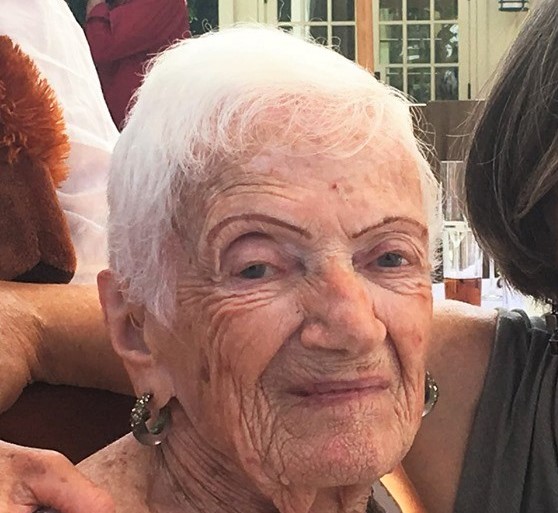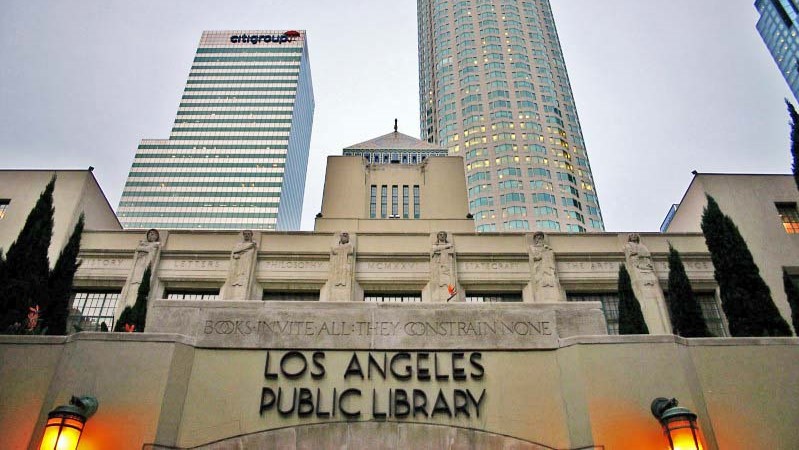
AFSCME Chapter 36 Retiree member Selma Benjamin was a teenager living in Frankfurt, Germany, when Adolf Hitler rose to power. Her parents and her nine siblings watched as Hitler’s reign grew more brutal.
Benjamin, who turned 100 years old this year and continues to speak out against injustice alongside her union sisters and brothers, recalls how Nazism and hatred toward German Jews like her began to threaten their daily lives.
“My father was a lawyer and he loved his job. One of his clients, who was Jewish, was falsely accused of a crime and put in prison,” recalled Benjamin. “He was afraid of the Nazis’ cruelty, so he killed himself in jail. That was when we knew we must leave.”
The eldest of her siblings, Benjamin was the first to flee to England, where the rest of her family managed to join her.
It was there, while supporting the war effort, that Benjamin got her first taste of union involvement. She found a job grinding artillery shell containers at a factory in Hyde, near Manchester, and rose to become an inspector. The workers were all unionized steelworkers, and the feeling of solidarity – among her fellow workers and toward a common goal – made an indelible impression.
While in England, she met her husband, Alfred, who had been interned among non-Jewish Germans.
“We worked [in Manchester] until I became pregnant. In 1948, we emigrated to the United States,” said Benjamin.
Coming to America
Those early years in the U.S. were difficult. Benjamin’s husband, a medical photographer, couldn’t find work in New York, Chicago or San Francisco, so they settled in Los Angeles, where Benjamin returned to work.
“I enrolled my daughters in a cooperative preschool, where the parents had to volunteer,” said Benjamin. “The women helped the teachers and the men did repairs [to the school] on the weekends. Then, I was a preschool teacher from 1952 through 1957. And I belonged to a union.”
After taking a job at a different, private preschool, Benjamin learned that a colleague had been fired for belonging to a union. She protested in solidarity with her co-worker and was fired herself. That firing, however, proved fortuitous. She returned to the school where she had originally obtained her teacher training, now as a director, and obtained raises for the four teachers she supervised.
“The members of the union board then told me I should ask for a raise for myself. They said I should insist on it. However, when I did, [the school] wouldn’t give me one. So I left,” she said.
She continued teaching at other schools in the area, and as her children grew, she found time to complete her undergraduate degree. First, she earned her bachelor’s degree, with Phi Beta Kappa academic honors, in 1959 at the University of California-Los Angeles, then her master’s degree in library science at the University of Southern California in 1960.
Los Angeles Librarian
That led her to a long career as a librarian for the City of Los Angeles, and a lengthy tenure working with, and on behalf of, her union sisters and brothers. Benjamin was instrumental in forming a union for librarians – The Librarians’ Guild – in 1967, which later affiliated with AFSCME in 1968, becoming The Librarians' Guild AFSCME 2626.
Through the 1960s and 1970s, she rose through the ranks to become a senior librarian, making a difference at all the branches where she worked: West Hollywood, Fairfax, Venice, Memorial, Mar Vista, Fremont and the Central Library. Throughout her career, she fought and won important union victories as well.
“We worked very hard on getting equal pay for women who worked in the library. It took several strikes, but we got it,” recalled Benjamin, who also fought for better workplace conditions as the health chair on her union board.
“There was a heat problem on the third floor in the catalog department [of the Central library]. I worked with OSHA on the heat standard,” said Benjamin. “I just looked it up – it was recently signed by former Gov. Jerry Brown. Now, if temperatures are over 80 degrees, employers have to provide shade and water both indoors and outdoors.”
Still Going Strong
At 100, Benjamin is among the oldest AFSCME members, and she’s still active in her union and her community: she attends Chapter 36 retiree meetings, takes classes in French literature and attends poetry sessions, which has led to two books of poems.
Speaking out against injustice and inequity has been a common thread throughout her life. Benjamin believes in the idea of “tikkun olam,” or “repairing the world.” Her message to workers about the importance of being a union member is straightforward: “Belonging to a union is a matter of improving your life. You have to stick up for your own rights, as well as those of others.”
